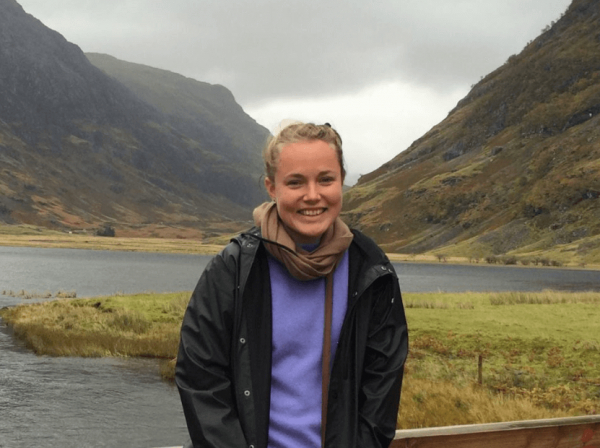Meet Linette: Regional Coordinator for Europe
Student Energy’s Global Youth Energy Outlook is led by a team of 12 youth Regional Coordinators who are working together to reach a total of 50,000 young people around the world in 2020 and 2021. As they engage young people in their region through a two-phase research process, the Outlook’s Regional Coordinators will be gathering insights and recommendations to develop the final Outlook report, with key findings set to be shared at COP26 in 2021.
In this interview series, we get to know each of our Regional Coordinators in-depth:
Introduce yourself and where you come from.
My name is Linette, I currently live in Copenhagen, Denmark, where I study Global Development, prior to this I lived in the UK for a few years where I studied a Masters in Global Environment, Politics and Society at the University of Edinburgh and worked with climate policy.
Why are you passionate about energy and/or climate action?
Despite my huge interest in sustainability, energy had never been an area of particular interest before starting my Masters in Global Environment, Politics and Society. For the most part of my undergraduate degree in Sociology, I mainly focused on behaviour change and equity aspects of sustainability without grasping how much influence energy has on both of these areas. In fact, I only realised this connection by accident, when I accidentally got registered for an energy major course looking at the energy system from an anthropological perspective. The course ended up being one of my favourite courses as I got to understand how the energy system may underpin, power and sustain certain lifestyles and/or belief-systems that halt the transition to a truly sustainable future.
What impact do you personally hope the Outlook will have in your region, and globally?
One of the things that drives me the most in relation to the Global Youth Energy Outlook is that the data we collectively gather and the knowledge that will be presented in the final product fill in a data gap. There is no data mapping young people’s hopes and understandings of the energy transition, which oftentimes make it hard for young people to make their demands heard – without data showing a broad picture policy makers are often more reluctant to support ideas or suggestions brought forward by youth. Although young people are increasingly invited into decision making spaces, I hope this data overview will help support the young representatives in creating a collective youth voice on energy issues both regionally and globally.
How did you first get involved in Student Energy?
I first got involved with Student Energy in 2019 when I was selected to be a part of the first ever youth cohort at the Clean Energy Ministerial/Mission Innovation (CEM10/MI-4) in Vancouver, Canada. This experience of meeting like-minded, passionate and incredibly engaged youth from all over the world sparked something in me, so I took part in the 2019 Student Energy Summit in London, authored a part of the Energy Systems Map, and I am very excited to be a part of the Global Youth Energy Outlook team!
